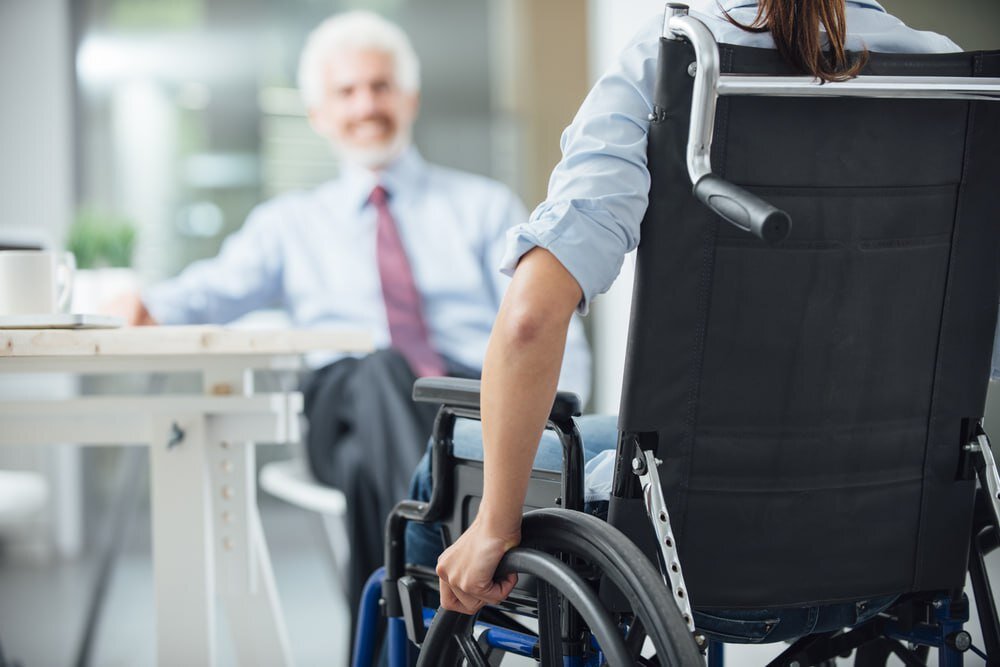Oppressing women including disabled ones still exists in so-called civilized societies
Women from the Leader's point of view - Part 35

TEHRAN – Violence against women and girls with disabilities is a widespread global problem across the world.
Women with disabilities experience violence at significantly higher rates than women without disabilities, more frequently, for longer, in more ways, and by more perpetrators; they have considerably fewer pathways to safety and are less likely to report experiences of violence. This is especially true for women with intellectual disabilities, above all if they live in long-stay residential institutions.
There is little attention paid to the attitudes and perceptions society has ingrained into women and girls with disabilities about their own worth and value, which may lead them to not understand sexual violence as such or believe sexual advances and violence are warranted.
Violence against women and girls with disabilities occurs around the world. In the United States, 1 out of 4 women has a disability. Despite being roughly 25% of the female population, women with disabilities are nearly 40% of rape survivors. (Centers for Disease Control and Prevention, "Sexual Violence and Intimate Partner Violence Among People with Disabilities," accessed Jul. 28, 2020)
In Canada, 60% of women with disabilities are likely to experience some form of violence during their lives as adults. (Disabled Women's Network of Canada, "Factsheet: Women with Disabilities and Violence," accessed Jul. 21, 2020)
Australian women with disabilities are 40% more likely than their nondisabled counterparts to experience domestic violence, and 70% of Australian women with disabilities have been sexually abused. (Human Rights Watch, "One Billion Forgotten: Protecting the Human Rights of Persons with Disabilities," accessed Jun. 29, 2020)
The Leader of the Islamic Revolution Ayatollah Seyyed Ali Khamenei in this regard said, “No one should think that the issue of oppressing women is particular to backward or, say, savage societies. This is not the case. If today's so-called civilized societies do not oppress women more than other societies, they do not definitely oppress them less. Well, these are important issues which should be attended to and worked on.” (April 19, 2014)
Women and girls with disabilities constitute 16% of the total population of women in the European Union (EU), and 60% of the overall population of 100 million persons with disabilities. This corresponds to an estimated 60 million women and girls with disabilities; the equivalent to the total population of Italy.
EU data show that 61 percent of women with disabilities have experienced sexual harassment since the age of 15 (compared with 54 percent of women without disabilities). In-work harassment is unlikely to be an exception. In fact, employers may be more likely to accept inappropriate behavior towards women with disabilities than abled-bodied women—as revealed by testimony in a UN Women paper published in 2020. To add insult to injury, women with disabilities are often forbidden to speak up and may even leave their jobs because of such abuses.
Violence against women and girls takes many forms as a result of gender, as a result of disability, and as a result of being a woman with a disability. These intersecting identities lead to women with disabilities experiencing more violence than both their nondisabled female counterparts and their disabled male counterparts. Furthermore, half of all women with disabilities have been assaulted more than 10 times.
Additional research shows that abusers inflict more severe and frequent violence on women with disabilities.
Abusers of women with disabilities range from significant others and other family members to hired caregivers and institution workers, to teachers and school administrators, to other community members. The vast majority (97 to 99 percent) of persons abusing women with disabilities are someone that the woman knows and relies on. Most often it is their spouse/partner; caregivers, personal assistants, and family members. Transportation providers may abuse women with disabilities as well.
The Leader of the Islamic Revolution in a speech on October 22, 1997, to women at Tehran's Azadi Stadium said, “The society, both from the legal point of view and the ethical perspective, must adopt tough punishments against those who believe they are entitled to violate women's rights.”
In his speech, Ayatollah Khamenei criticized the "moral depravity" of the West and said women's rights, within the confines of the sharia, should be respected.
Leave a Comment